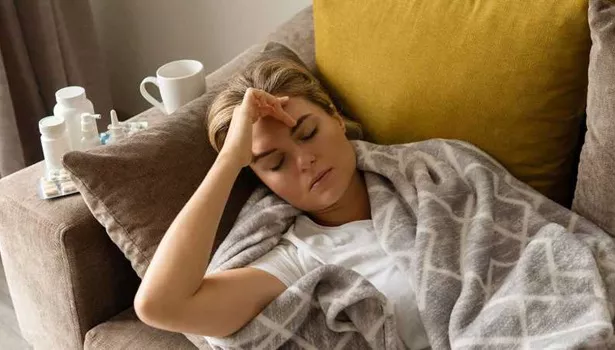Menopause is a significant phase in a woman’s life, marking the end of her reproductive years. This natural biological process comes with various symptoms and changes that can affect physical and emotional health.
1. What is Menopause?
Menopause is defined as the time when a woman permanently stops having menstrual periods and can no longer conceive naturally. It is officially diagnosed after 12 consecutive months without a menstrual period. Menopause typically occurs in a woman’s late 40s to early 50s, but it can vary widely among individuals. It signifies the end of the ovarian follicular activity and the decrease in estrogen and progesterone production.
2. What Are the Symptoms of Menopause?
The symptoms of menopause can vary greatly in severity and duration. Some of the most common symptoms include:
Hot Flashes: Sudden feelings of warmth, often intense, usually over the face, neck, and chest.
Night Sweats: Hot flashes that occur at night, often disturbing sleep.
Irregular Periods: Menstrual cycles become erratic before they stop completely.
Vaginal Dryness: Decreased moisture and elasticity in the vaginal walls, leading to discomfort.
Mood Changes: Increased irritability, anxiety, and depression.
Sleep Problems: Difficulty falling or staying asleep.
Weight Gain and Slowed Metabolism: Changes in weight and metabolism due to hormonal shifts.
Thinning Hair and Dry Skin: Noticeable changes in hair and skin texture.
Loss of Breast Fullness: Changes in breast tissue and shape.
3. When Will Menopause Start?
The onset of menopause varies, but it typically occurs between the ages of 45 and 55. The average age of onset is 51. Menopause can be categorized into three stages:
Perimenopause: This transitional period before menopause can last several years. During perimenopause, estrogen levels begin to fluctuate, and symptoms such as irregular periods and hot flashes may start. It often begins in a woman’s 40s but can start in her 30s.
Menopause: This stage is reached when a woman has gone 12 consecutive months without a menstrual period. The average age is 51.
Postmenopause: The years following menopause, during which menopausal symptoms may continue but typically decrease in intensity.
Factors influencing the timing of menopause include genetics, lifestyle, and overall health. Smoking, for instance, can lead to an earlier onset of menopause.
4. How to Deal with Menopause
Managing menopause involves addressing both the symptoms and the long-term health impacts associated with the decline in estrogen. Here are some strategies:
Hormone Replacement Therapy (HRT): HRT can be effective in reducing hot flashes, night sweats, and vaginal dryness. However, it may not be suitable for everyone due to potential risks, so it’s important to discuss it with a healthcare provider.
Lifestyle Changes: Regular exercise, a balanced diet, and maintaining a healthy weight can help manage symptoms and improve overall well-being. Avoiding triggers like spicy foods, caffeine, and alcohol can reduce hot flashes.
Non-Hormonal Treatments: Medications such as antidepressants, blood pressure drugs, or anticonvulsants may help reduce hot flashes and mood swings.
Vaginal Estrogen: This can help relieve vaginal dryness and discomfort during intercourse.
Alternative Therapies: Some women find relief through acupuncture, herbal supplements, and relaxation techniques such as yoga and meditation. However, the efficacy of these treatments varies, and it’s important to consult a healthcare provider before starting any new treatment.
Support and Counseling: Speaking with a therapist or joining a support group can help manage emotional symptoms such as anxiety, depression, and mood swings.
Conclusion
Understanding the onset and symptoms of menopause, as well as effective management strategies, can empower women to navigate this phase of life with confidence. If you are experiencing symptoms of menopause, consult with a healthcare provider to develop a personalized plan that addresses your specific needs and improves your quality of life.
FAQs
What age does menopause typically start?
Menopause typically occurs between the ages of 45 and 55, with the average age being 51. However, it can vary widely among individuals.
What are the most common symptoms of menopause?
Common symptoms include hot flashes, night sweats, irregular periods, vaginal dryness, mood changes, sleep problems, weight gain, thinning hair, dry skin, and loss of breast fullness.
How can menopause symptoms be managed?
Symptoms can be managed through hormone replacement therapy (HRT), lifestyle changes, non-hormonal treatments, vaginal estrogen, alternative therapies, and support and counseling. It is important to consult with a healthcare provider for personalized treatment plans.
Related topics:
- 5 Best Face Masks for Menopause: Expert Tips & Recommendations
- Diet to Lose Menopause Weight: A Complete Overview
- Diet for Post Menopausal Belly Fat: A Complete Overview


